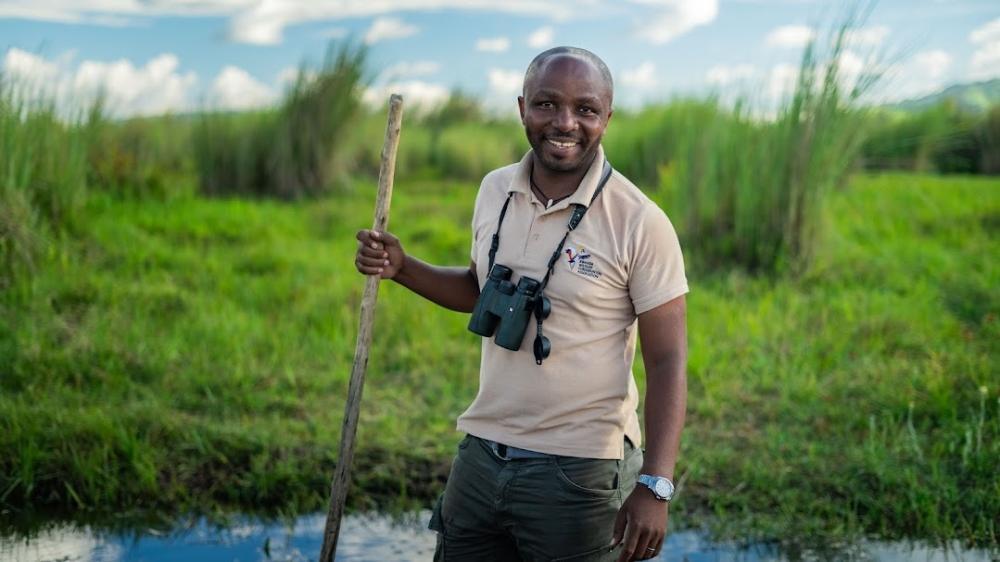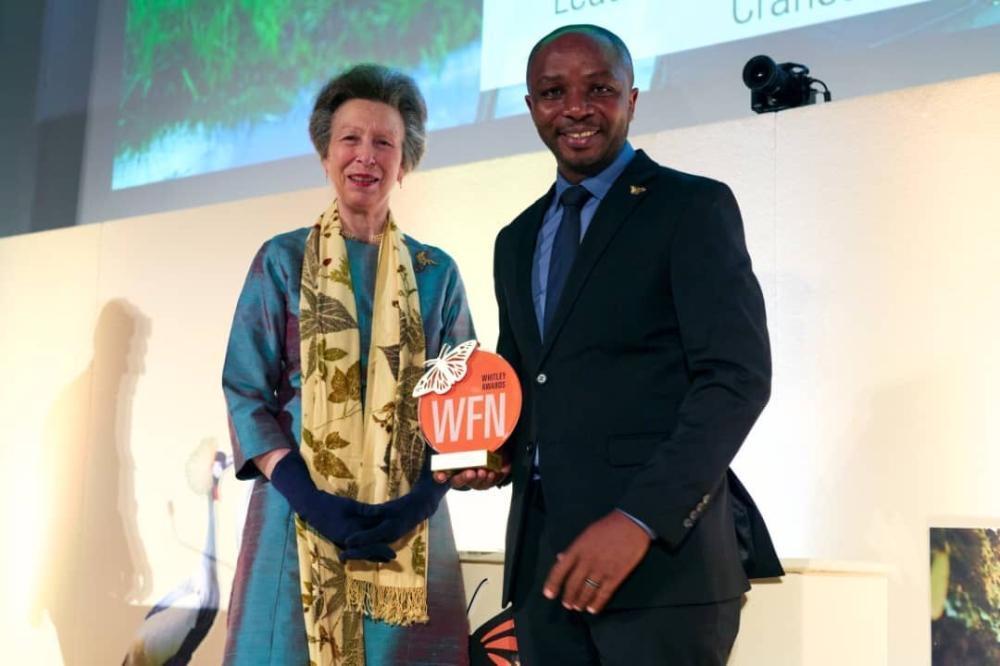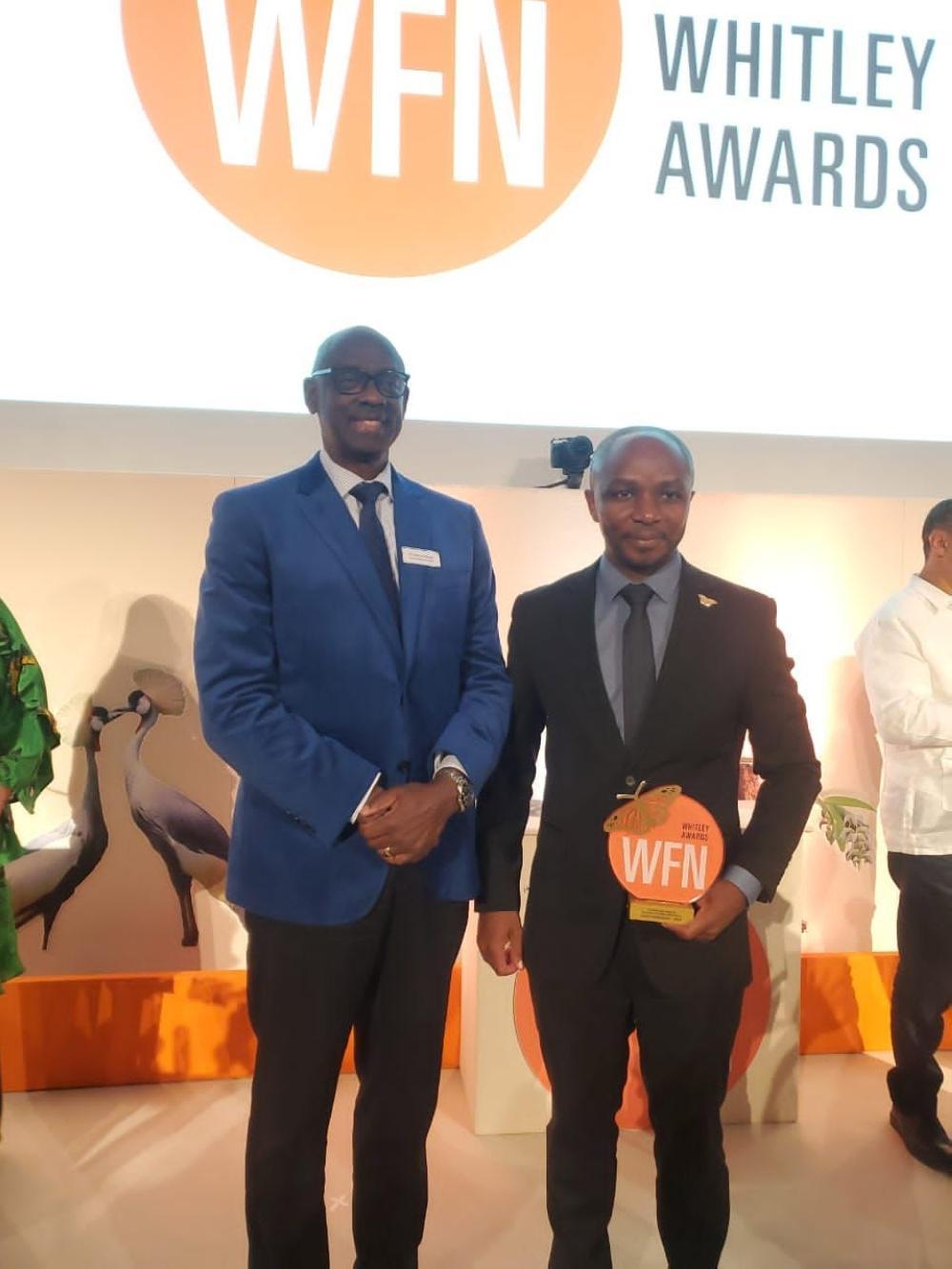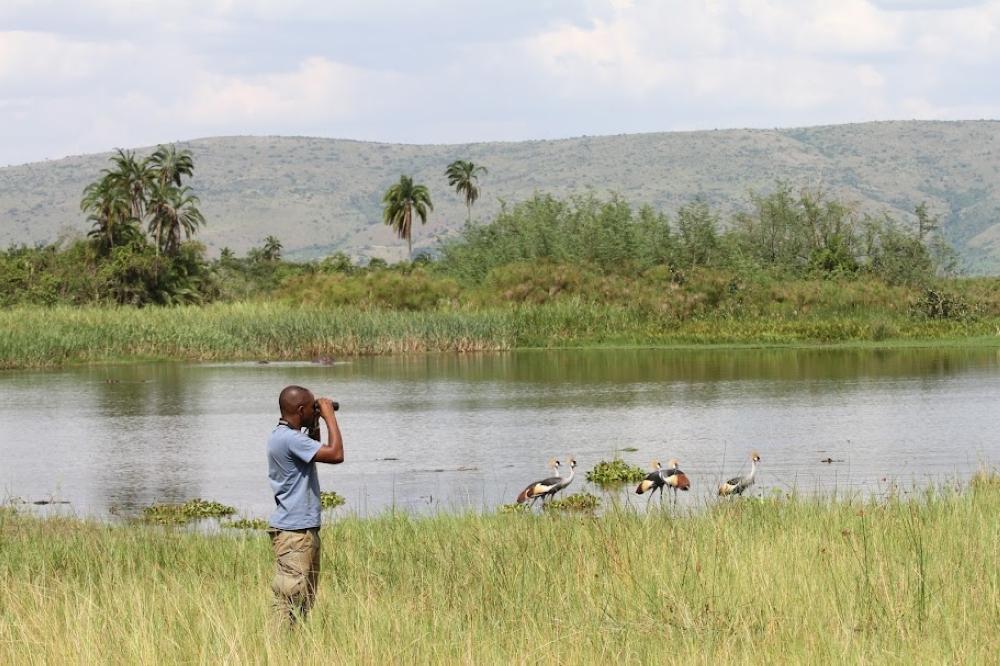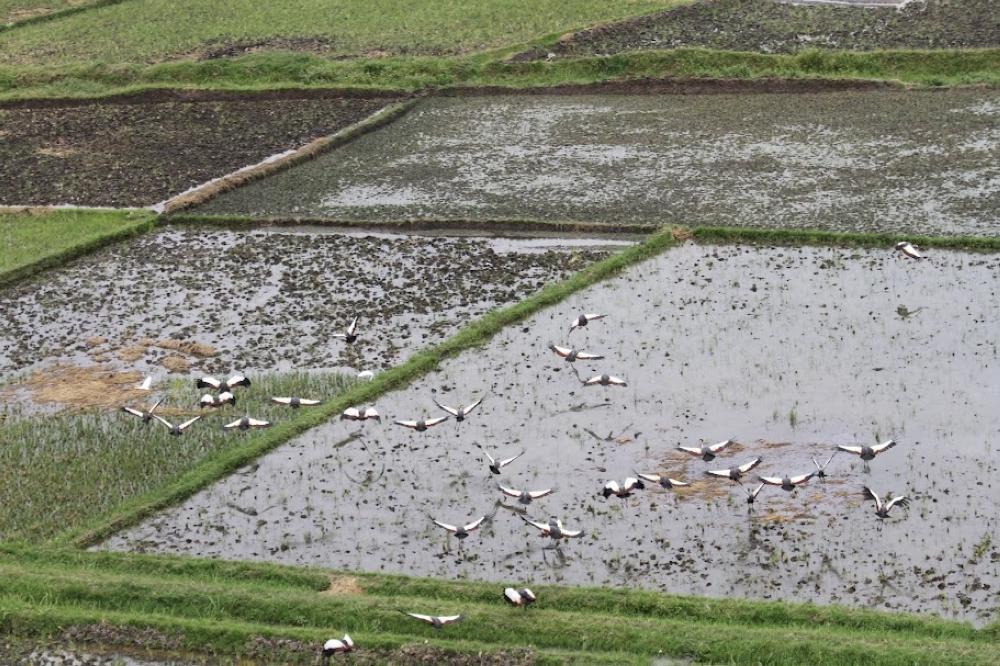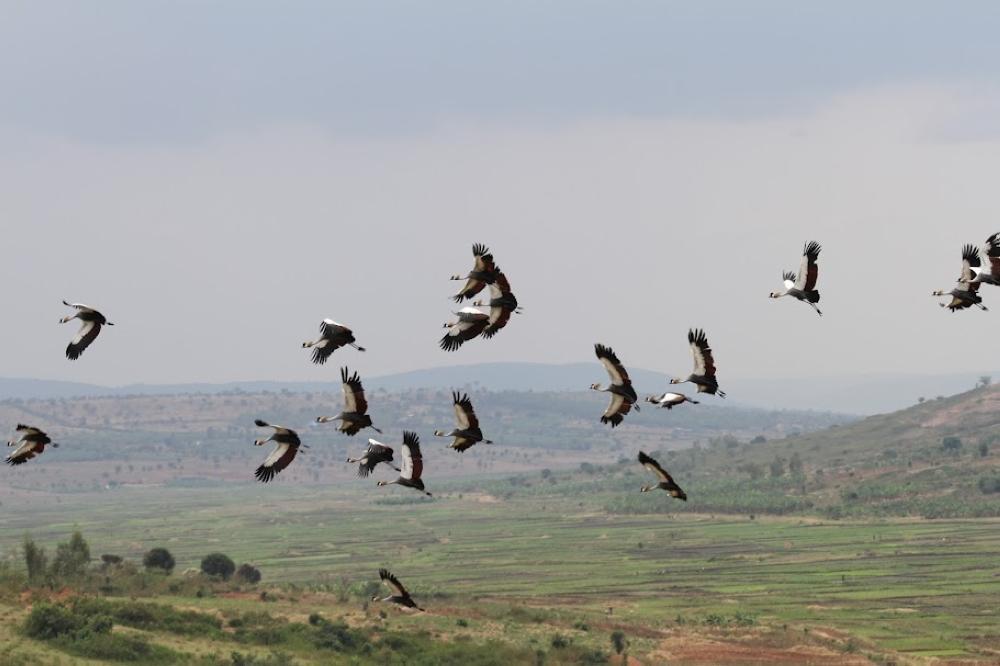Africa-Press – Rwanda. Dr Olivier Nsengimana, a Rwandan veterinarian, has been awarded the 2025 Whitley Gold Award, worth £100,000 (approx. Rwf192 million) for his leadership in protecting the Grey Crowned Crane and wetland habitat across East Africa.
The award is presented by the Whitley Fund for Nature (WFN), a UK-based conservation charity that supports grassroots environmental leaders in the Global South.
A former gorilla doctor, Nsengimana has overseen the remarkable growth of Rwanda’s wild Grey Crowned Crane population—from just 300 individuals to 1,293—since founding the Rwanda Wildlife Conservation Association (RWCA) in 2015. He has won the award for the second time in eight years.
In the past decade, he has successfully halted the illegal trade in Grey Crowned Cranes in Rwanda, where the birds were previously captured to be kept as pets and displayed as symbols of wealth and longevity.
This crane species is especially found in Rugezi swamp in Northern Province.
While Rwanda is best known for its mountain gorillas and scenic hills, it also has 860 wetlands, many of which serve as vital nesting grounds for the crane.
These wetlands also play a crucial role in mitigating the effects of climate change by acting as carbon sinks and regulating floodwaters, thereby protecting nearby communities.
With the funding from the Whitley Gold Award, Nsengimana and his team said plan to deepen transboundary collaboration with neighbouring countries—Tanzania and Uganda—with the aim of establishing a political framework for regional wetland conservation. Plans are also underway to expand their work into Burundi.
He first received a Whitley Award in 2018 for his successful campaign to rehabilitate Rwanda’s captive crane population.
In partnership with the Rwandan government, every Grey Crowned Crane in captivity was returned to the wild, which was hailed by conservationists as remarkable achievement.
The Grey Crowned Crane, along with the Black Crowned Crane, is one of only two crane species that roost in trees.
These cranes also form lifelong mating bonds.
Although the species is legally protected in Rwanda and Uganda, habitat loss remains its greatest threat.
Despite population increases in Rwanda, Grey Crowned Crane numbers are continuing to decline across Africa.
Rwanda faces intense pressure from agricultural expansion and growing population, which compete with wildlife habitat.
Climate change and the international illegal pet trade further exacerbate the threats facing this iconic bird.
In response, Nsengimana and his team are increasing efforts to protect Rugezi Marsh, a high-altitude Ramsar site that is home to about a quarter of Rwanda’s Grey Crowned Crane population.
Located more than 2,000 metres above sea level, Rugezi is a key water reserve whose rivers feed into the twin lakes of Burera and Ruhondo, which are essential for hydroelectric power generation to meet the energy needs of Rwanda’s growing population.
His initiative has joined national efforts to restore the marsh, which suffered severe degradation in the early 2000s when over half of its area was lost due to agricultural activities and exploitation.
Globally, wetlands are disappearing three times faster than forests and are now considered the most threatened ecosystem on earth.
The funding the British charity will also enhance training for 75 community rangers, of whom one-third are women, working in the Rugezi Marsh, and increase public awareness about the importance of conserving wetlands.
Nsengimana, 41, began his career as a field veterinarian with Gorilla Doctors, a nonprofit providing life-saving medical care to mountain gorillas.
In 2015, he earned a Master’s degree in Conservation Medicine from the University of Edinburgh. He studied veterinary medicine at the University of Rwanda from 2004 to 2010.
Other 2025 Whitley Gold Award winners
Six additional winners were awarded £50,000 each for their innovative conservation projects.
Dr Yara Barros from Brazil is protecting jaguars by teaching communities to co-exist with the apex predator in Iguaçu National Park in the Atlantic Forest.
Reshu Bashyal from Nepal is addressing widespread poaching of orchids and yews, driven by international demand for their medicinal and ornamental value.
Dr Federico Kacoliris from Argentina is expanding protection for the country’s most threatened amphibian, the El Rincón stream frog, and its river habitat in the volcanic Somuncura Plateau.
Dr Andrés Link from Colombia is protecting brown spider monkeys in the lowland rainforests of central Colombia and reconnecting the species’ fragmented habitat through a network of private protected areas.
Rahayu Oktaviani from Indonesia is ensuring continuous canopy for the Endangered Javan gibbon on Java, one of the world’s most densely populated islands.
Dr Farina Othman from Malaysia is saving the last 300 Bornean elephants in the east coast of Sabah State in Malaysia’s Borneo by working with large and small palm oil stakeholders.
For More News And Analysis About Rwanda Follow Africa-Press

